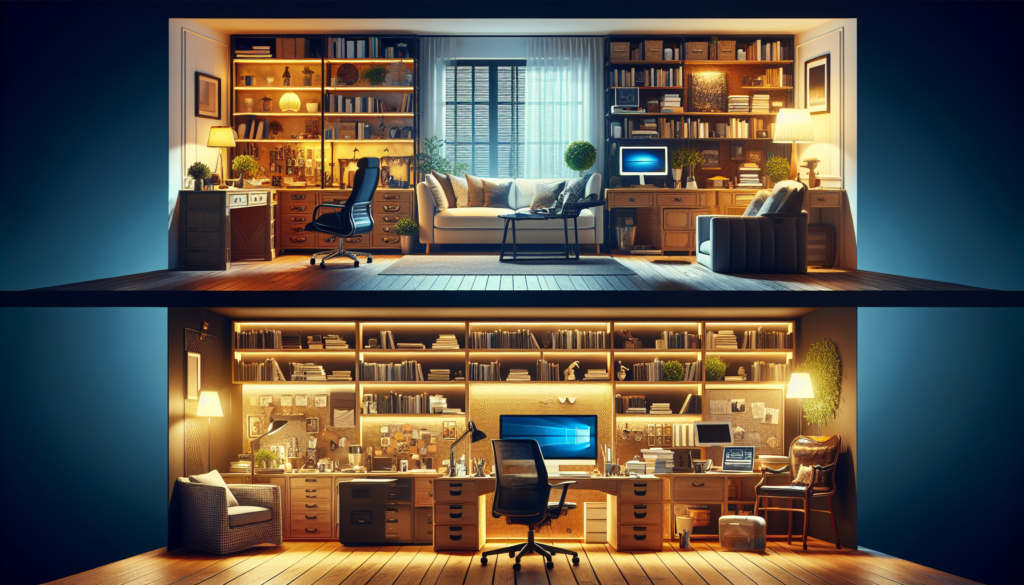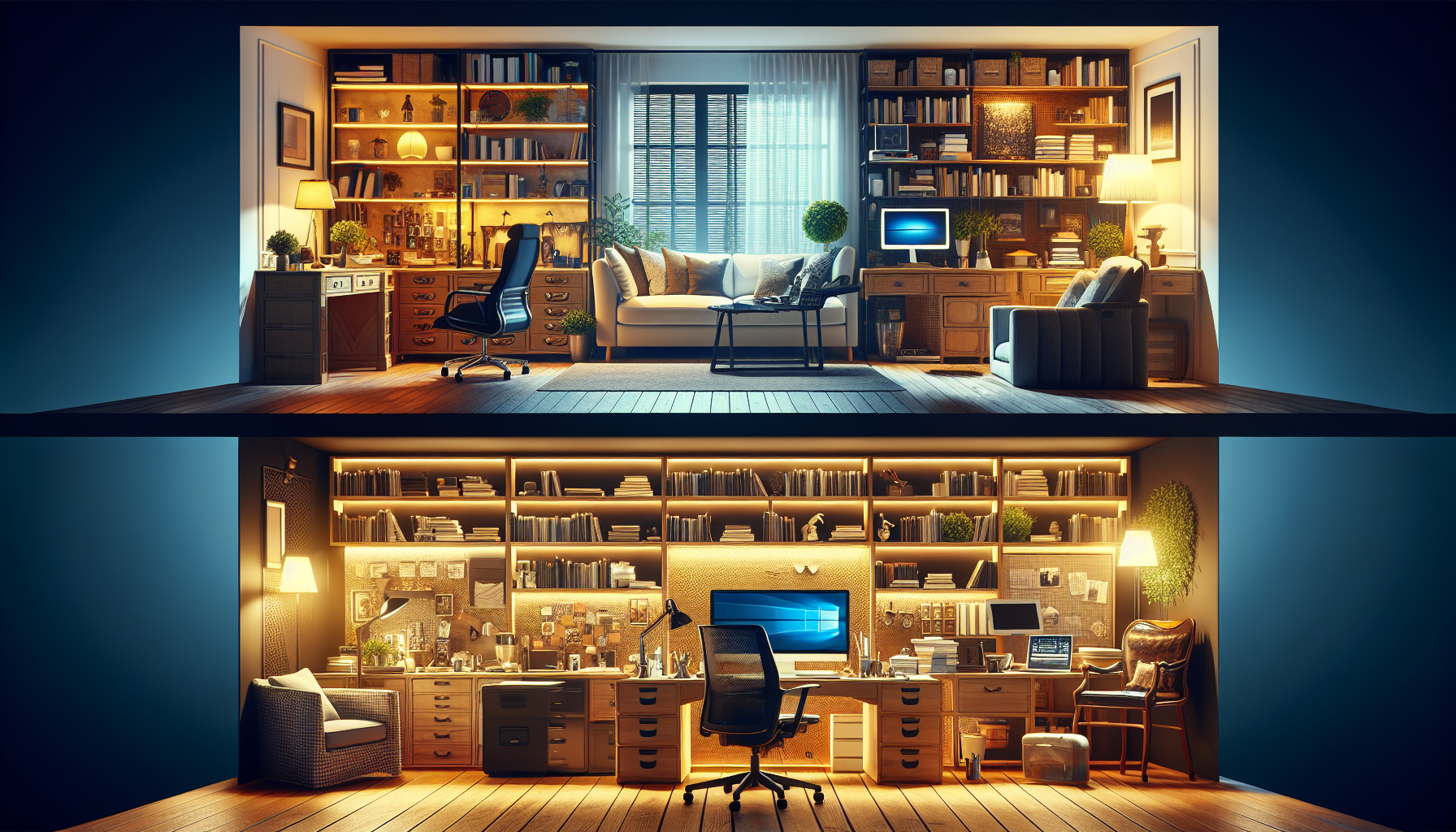So you’ve decided to set up a space in your home to work from, but you’re not quite sure what qualifies as a home office? Well, fret not! In this article, we will explore the various factors that classify a space as a home office. From the basic essentials to the legal requirements, we’ve got you covered. Whether you’re a freelancer, an entrepreneur, or simply someone looking to create a productive workspace, understanding what makes a home office can help you optimize your work environment and ensure you get the most out of your remote working experience.

Defining a Home Office
A home office is a designated space within your home where you can comfortably and efficiently carry out work-related tasks. It is a dedicated area that is separate from the main living areas of your home, designed specifically for work purposes. Whether you are a freelancer, a remote worker, or a small business owner, having a well-defined home office can greatly enhance your productivity and work-life balance.
Dedicated Space
To classify as a home office, the space must be specifically dedicated to work-related activities. It should be separate from areas such as the living room or bedroom, as these spaces can be easily infiltrated with distractions. Ideally, the home office should have a door or some form of partition to create physical separation from the rest of the house. This dedicated space helps to create a professional mindset and minimize interruptions, allowing you to focus solely on your work.
Functions of a Home Office
Your home office should be designed to cater to your specific work functions and requirements. Whether you primarily engage in computer-based tasks, conduct client meetings, or require ample storage for paperwork, your home office layout should reflect these needs. Consider the type of work you do and the tools or equipment necessary, and design your space accordingly. It should be organized, functional, and conducive to your work style, allowing you to efficiently complete your tasks.
Furniture and Equipment
Key to any home office is suitable furniture and equipment. A comfortable and ergonomic chair is essential for maintaining good posture and preventing unnecessary strain on your back or neck. A spacious desk or work surface is also important to accommodate your work materials and provide ample space for spreading out or organizing. Additionally, invest in quality technology such as a reliable computer, printer, and phone system that meet your specific professional requirements.
Lighting and Ventilation
Proper lighting and ventilation are crucial in a home office to ensure a comfortable and healthy working environment. Natural light not only improves productivity but also has positive effects on your mood and overall wellbeing. Position your desk near a window to maximize natural light during the day. Additionally, consider installing suitable artificial lighting options, such as task lighting or overhead lights, to supplement the natural light and provide proper illumination throughout the space. Adequate ventilation is also important to maintain fresh air and regulate temperature in your home office.
Privacy and Distractions
One of the advantages of a home office is the ability to personalize your space and tailor it to your preferences. However, it’s important to strike a balance between personalization and professionalism. Minimize distractions by creating a clean and clutter-free workspace. Opt for neutral colors and minimal decor to create a calm and focused environment. Additionally, establish boundaries with family members or housemates to ensure privacy during work hours. Communicating your working schedule and setting clear expectations will help minimize interruptions and maintain productivity.
Legal and Tax Implications
When classifying a space as a home office, it’s important to be aware of the legal and tax implications that may arise. Consult with a legal or tax professional to understand the specific regulations and deductions related to a home office in your region. In some cases, you may be eligible for tax deductions related to utilities, mortgage or rent, and equipment purchases. Ensuring compliance with local regulations and taking advantage of available benefits can help maximize efficiency and reduce expenses.
Health and Safety Considerations
Creating a safe and healthy work environment is vital when setting up a home office. Pay attention to ergonomics and invest in a supportive chair and adjustable desk to promote good posture and prevent musculoskeletal issues. Take regular breaks and incorporate movement or stretching exercises to prevent prolonged sitting. Additionally, ensure that cords and cables are properly secured and organized to prevent tripping hazards. Implementing proper safety measures, such as fire extinguishers and smoke detectors, is also essential to protect both yourself and your workspace.
Technology and Connectivity
In today’s digital world, technology and connectivity play a crucial role in the effectiveness of a home office. Ensure that your internet connection is reliable and has sufficient bandwidth to support your work requirements. Set up strong Wi-Fi coverage throughout your home office to prevent connection issues. Additionally, invest in the necessary software and apps to streamline workflow and enhance productivity. Regularly update your technology to stay current with advancements and ensure seamless communication and collaboration with clients or colleagues.
Balancing Work and Life
One of the challenges of working from home is maintaining a healthy work-life balance. When your home office is just steps away from your living quarters, it’s important to establish clear boundaries. Set designated work hours and strive to maintain a consistent schedule. Create a routine that includes breaks, regular exercise, and time for personal activities. Be mindful of not allowing work to spill over into your personal time and vice versa. Separating work and life ensures that you have time to relax, de-stress, and enjoy your non-work activities, leading to increased overall happiness and productivity.
In conclusion, a home office is a dedicated space within your home that is specifically designed for work-related activities. It should be separate from your living areas, well-equipped, and conducive to productivity. By carefully considering the various aspects, such as furniture, lighting, privacy, legal implications, and technology, you can create a home office that meets your specific needs. Remember to prioritize your health, safety, and work-life balance to ensure a successful and fulfilling professional life from the comfort of your own home.
